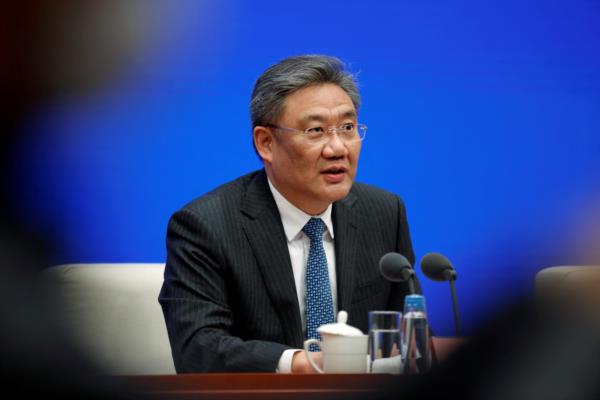
China has recently expressed its concerns to the United States over the export controls and sanctions related to chip-making. The issue has sparked tensions between the world's two largest economies, further straining their already rocky trade relationship.
The United States has been imposing stricter export controls on several technology-related sectors, especially semiconductor chips, citing national security concerns. This move has reportedly limited Chinese access to advanced chip-making technology, which has prompted China to voice its concerns regarding the negative impact on its tech industry.
China has argued that the export controls and sanctions imposed by the US have not only disrupted the global supply chain but have also hindered global technological cooperation. The country believes that such restrictions negatively impact the normal trade order and hinder the development of the global digital economy.
Chinese officials have consistently urged the US to reconsider these export controls and sanctions, stating that they not only harm Chinese companies but also damage the interests of American companies operating in China. Additionally, they have emphasized the need for both countries to work together to promote bilateral trade and foster a more stable business environment.
In response, the US has defended its actions by stating that the export controls are necessary to prevent the potential diversion of sensitive technology to countries that may pose a threat to national security. The US government has long been concerned about China's growing dominance in advanced technology sectors, and the restrictions are seen as a way to protect American intellectual property and innovation.
The dispute over chip-making export controls comes at a time when tensions between China and the US are already high, as the two countries are engaged in a broader trade war. The US has accused China of unfair trade practices, including intellectual property theft and forced technology transfers. As a result, both countries have implemented tariffs on billions of dollars' worth of each other's goods, creating significant disruptions in global trade.
The recent concerns expressed by China over chip-making export controls add another layer of complexity to the already strained relationship. Addressing these concerns and finding common ground will be crucial in order to defuse tensions and foster a more stable and cooperative economic environment between the two countries.
It remains to be seen how China and the US will navigate through these challenges and whether they will be able to strike a balance between national security concerns and ensuring a fair and open global trade system. For now, the issue of chip-making export controls continues to be a contentious topic that requires close attention from both sides and the international community at large.







